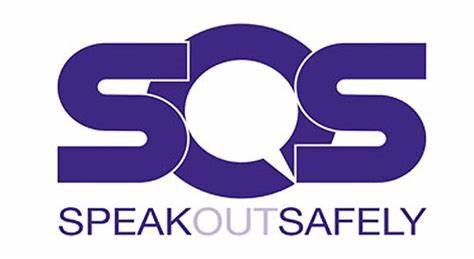Personal, Social, Health & Economic education (PSHE)
All schools must provide a curriculum that is broadly-based, balanced and meets the needs of all pupils, preparing them for life beyond the classroom. PSHE plays a vital role in developing students' knowledge, skills, and values to help them make informed decisions, build healthy relationships, and navigate the challenges of the modern world. It encourages an environment where students can ask questions and learn about their needs and the needs of others, ultimately contributing to their overall confidence and well-being.

Personal, social, health and economic (PSHE) education is the school subject that deals with real-life issues affecting our children, families and communities. It’s concerned with the social, health and economic realities of their lives, experiences and attitudes. It supports pupils to be healthy (mentally and physically); safe (online and offline) and equipped to thrive in their relationships and careers. PSHE education helps all children and young people to achieve their fullest potential.
PSHE education is important for students as it:
- Contributes to physical and mental health and wellbeing, encouraging individual responsibility for health.
- Contributes to the safety and protection of our children and young people, from staying safe online to understanding risks associated with drugs and alcohol.
- Promotes independence, resilience and responsibility — preparing children and young people for future roles as parents, employees and leaders.
- Supports employability by developing the personal and social skills demanded by commerce and industry.
- Supports pupils to be critical consumers of information, and develops the skills to identify misleading news or views on social media and elsewhere.
See our parent handbooks here:
Quality of Education Handbook Personal Development Handbook
PSHE at Winterbourne Academy
Young people today are growing up in an increasingly complex world and living their lives seamlessly online and offline. This presents many positive and exciting opportunities, but also challenges and risks. In this environment, children and young people need to know how to be safe and healthy, and how to manage their academic, personal and social lives positively.
The Relationships, Sex Education and Health Education (RSHE) and the Personal, Social, Health and Economic Education (PSHE) curriculum covers Years 7 to 11, each with a full academic year of lessons, based on one lesson per week. This curriculum is rooted in the (September 2020) statutory guidance for RSHE. The curriculum design has also been informed by the work of the Cre8tive Curriculum as well as the PSHE Association.
In summary, PSHE education provides opportunities to learn about:
- Relationships: including developing and maintaining positive relationships and dealing with negative relationships. This may include learning about bullying, consent, how to communicate effectively, inappropriate behaviour in relationships and, at a later stage, topics such as sexual coercion and grooming.
- Developing independence, resilience and responsibility: including preparing children and young people to face life’s challenges and make the most of life’s opportunities.
- Health: including healthy lifestyles, healthy eating and exercise; mental and emotional health; drug, alcohol and tobacco education; emergency life-saving skills.
- Managing risk: including understanding personal safety and online safety; financial choices and risks; appreciating the value of taking risks in certain situations (e.g. entrepreneurial risks).
- Economic wellbeing: including the role of money, influences on our use of money, gambling, careers education
- Employability skills: including learning about enterprise, business and finance. Developing the skills and attributes to succeed at work, including communication skills and confidence.
Relationships, Sex Education and Health Education (RSHE)
Our RSHE programme is designed to provide age-appropriate knowledge and understanding of safe and healthy relationships, built on respect and care for others. Lessons follow a spiral curriculum, meaning topics are revisited with greater depth as students move through school, ensuring understanding develops in line with their age and maturity.
Some examples of what is covered across different year groups include:
- Year 7: Understanding consent and boundaries, the qualities of healthy friendships, and how to manage pressures within relationships.
- Year 8: Exploring identity, gender, and stereotypes, learning about the menstrual cycle, and an introduction to contraception and healthy relationships.
- Year 9: The law around sexual consent and FGM, delaying sexual activity, the impact of the media on relationships, and detailed study of contraception and STIs.
- Year 10: Sexting, pornography, sexual violence, and exploring safe and respectful attitudes towards sex and relationships.
- Year 11: Revisiting contraception and STIs, respect in relationships, fertility, and fertility treatment.
As you will see, the focus is on helping students develop knowledge, skills, and attitudes that will enable them to make safe, respectful, and informed choices.
More information is available in our Parent Guide to RSHE & PSHE Curriculum and in our curriculum learning journeys:
5 year pshe curriculum learning journey pptx.pdf
How often do we teach PSHE?
We allocate 1 lesson to PSHE each week to teach the PSHE knowledge and skills in a developmental and age-appropriate way.
These explicit lessons are reinforced and enhanced in many ways including:
- Assemblies
- Praise and reward system
- Our school values
- Modelling expectations and behaviours as staff
- Outreach in the local community
- Charity fundraising and enterprise projects
- Drop-down days
Statutory RSE & Health Education
Under section 78 of the Education Act 2002 and the Academies Act 2010, a PSHE curriculum:
- Promotes the spiritual, moral, cultural, mental and physical development of pupils at the school and of society, and
- Prepares pupils at the school for the opportunities, responsibilities and experiences of later life.
Under the Department for Education guidance, Relationships, Sex and Health Education (RSHE) has been statutory for all schools since September 2020. Parents do not have the right to withdraw their child from Relationships or Health Education, or from any sex education that forms part of the statutory National Curriculum (including elements taught through both Science and RSHE). Parents may, however, request to withdraw their child from the non-science elements of Sex Education. If you wish to do so, please complete this Parent Form and return it to: Sarah.Webber@olympustrust.co.uk. This will lead to a meeting to discuss your request and next steps. Please note: pupils who are withdrawn retain the right to opt back into Sex Education up to three terms before their 16th birthday.
“The Relationships Education, Relationships and Sex Education and Health Education (England) Regulations 2019, made under sections 34 and 35 of the Children and Social Work Act 2017, make Relationships and Sex Education compulsory for all pupils receiving secondary education… They also make Health Education compulsory in all schools except independent schools. Personal, Social, Health and Economic Education (PSHE) continues to be compulsory in independent schools.” - DfE Guidance p.8.




